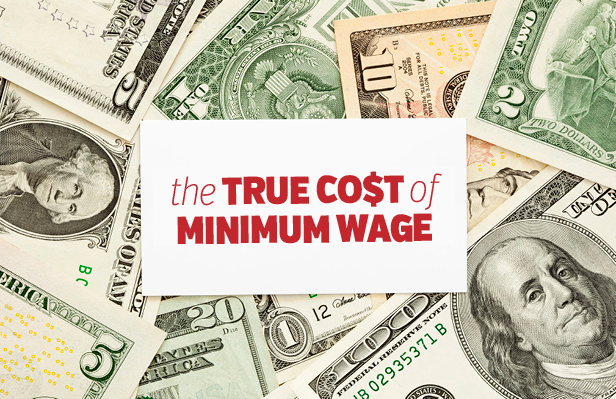Media

The Dark Side of Raising the Wage
Eunice Medina is a childcare worker living in Oakland, California. Last March, the city instituted a $12.55 minimum wage, leaving Eunice with fewer workdays and reduced hours.
Across the country in East Aurora, New York, restaurant owner John Rooney just closed one of his two locations after 14 years in business:
I've got employees that have been working for me for 14 years, that we had to say goodbye to, for no other reason,” Rooney said, “than that increase in the minimum wage.
Eunice and John are cautionary tales for Pennsylvania where Governor Wolf just issued an executive order to raise the minimum wage for 450 state workers and future state contractors.
Increasing the minimum wage from $7.25 an hour to $10.15 an hour for about 0.57% of state workers sounds compassionate, but experiences in Oakland, New York and many other places show higher wage mandates lead to fewer job opportunities.
Of course, the Commonwealth isn't like a regular employer. Instead of layoffs, politicians will simply pass on the $4 million cost of this mandate to taxpayers.
Interestingly, after lauding his executive order, Gov. Wolf seemed to acknowledge that wage mandates are a burden. When asked if the wage increase will affect human service workers, the governor explained they didn't want to place further burdens or pressure on human service workers absent a budget.
The Independent Fiscal Office confirmed the governor's concerns in a report it relased on the costs of raising the minimum wage, concluding it would keep or put 31,000 Pennsylvanians out of work. Some may argue this is a necessary tradeoff to reduce poverty, but research from the Employment Policies Institute found no statistically significant evidence that a higher minimum wage reduces participation in means-tested welfare programs.
If Gov. Wolf and other policymakers are truly concerned about lifting people out of poverty, they should pursue the following reforms:
Lower the cost of doing business: It is possible to raise wages and increase hiring at the same time. According to a Mercatus Center study, a one-percentage point drop in the corporate tax rate would likely increase annual economic growth by 0.1 to 0.2%.
Reward hard work: Restructure welfare programs to avoid the arbitrary benefit cutoffs discouraging employment and trapping families in poverty.
Lower barriers to employment: Scale back professional licensing to give low-wage earners the opportunity to increase their incomes through entrepreneurship.